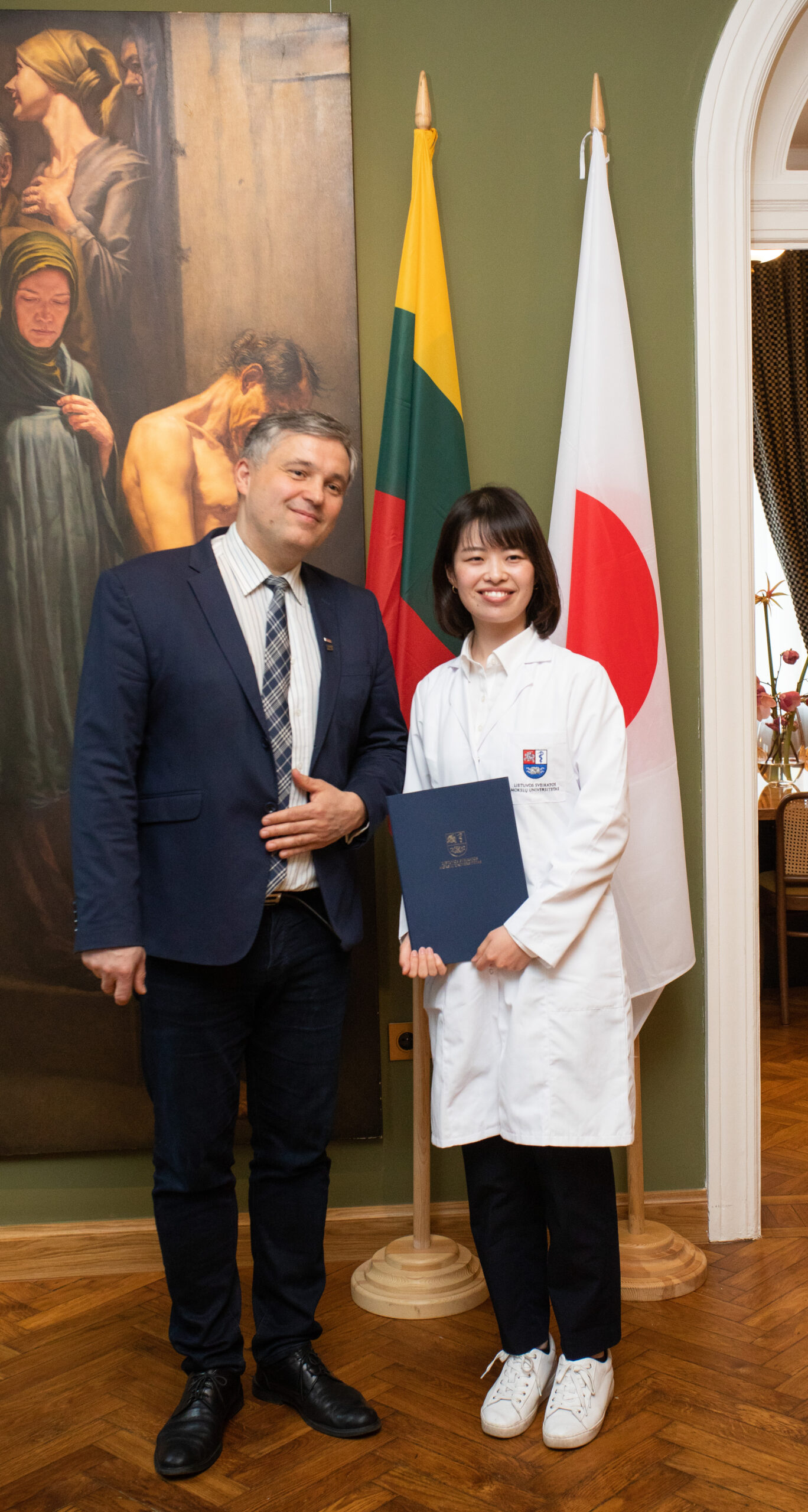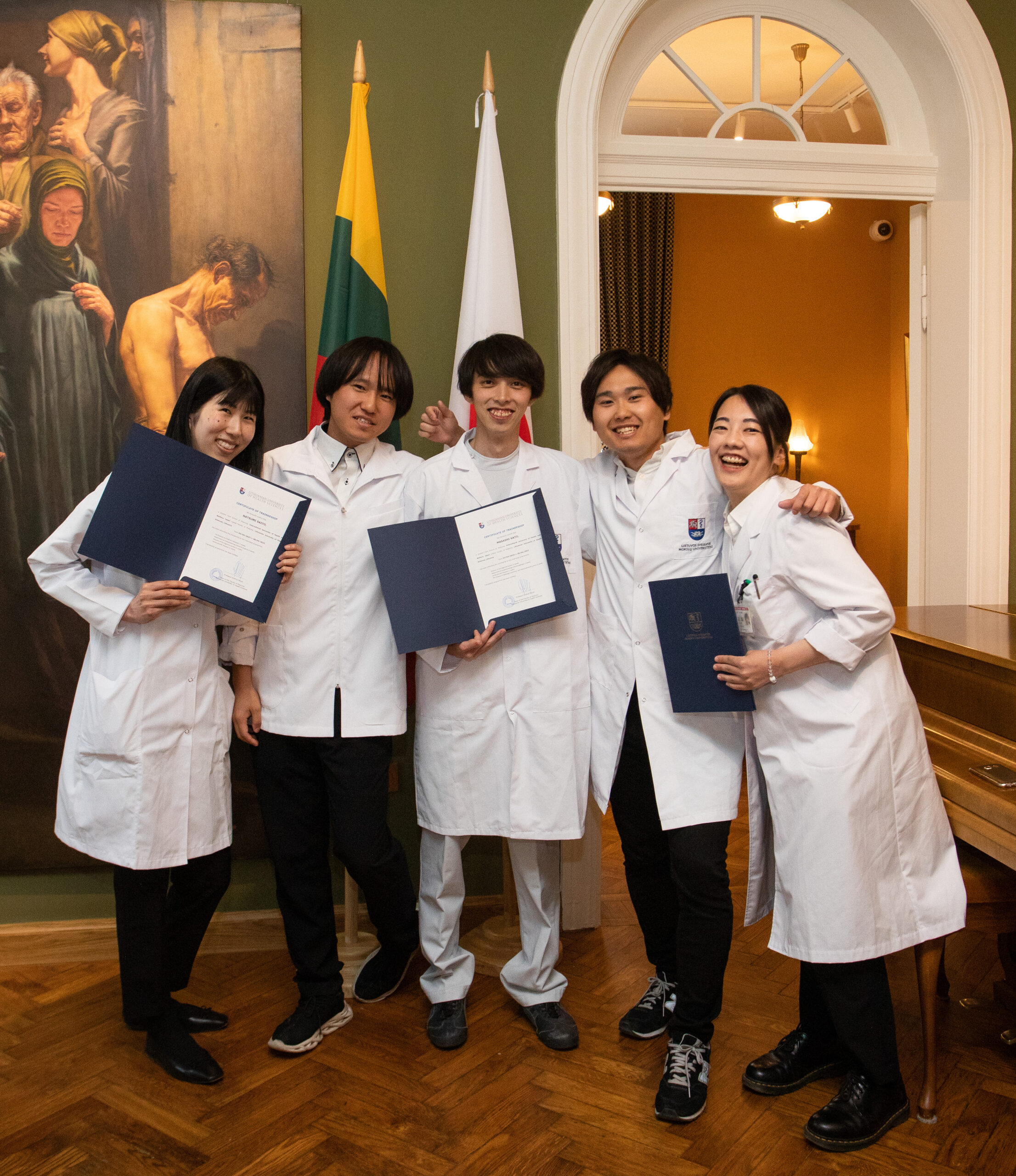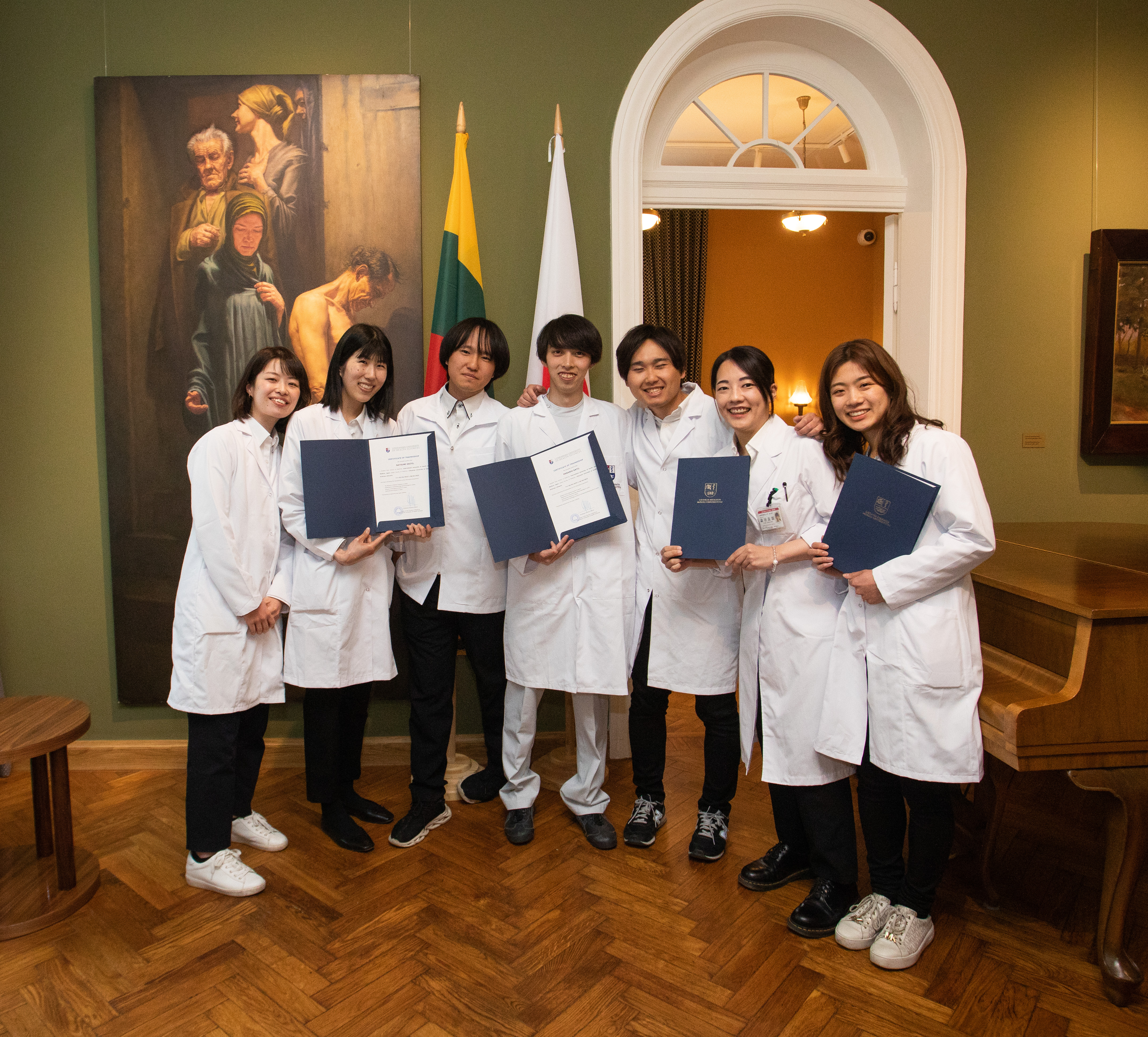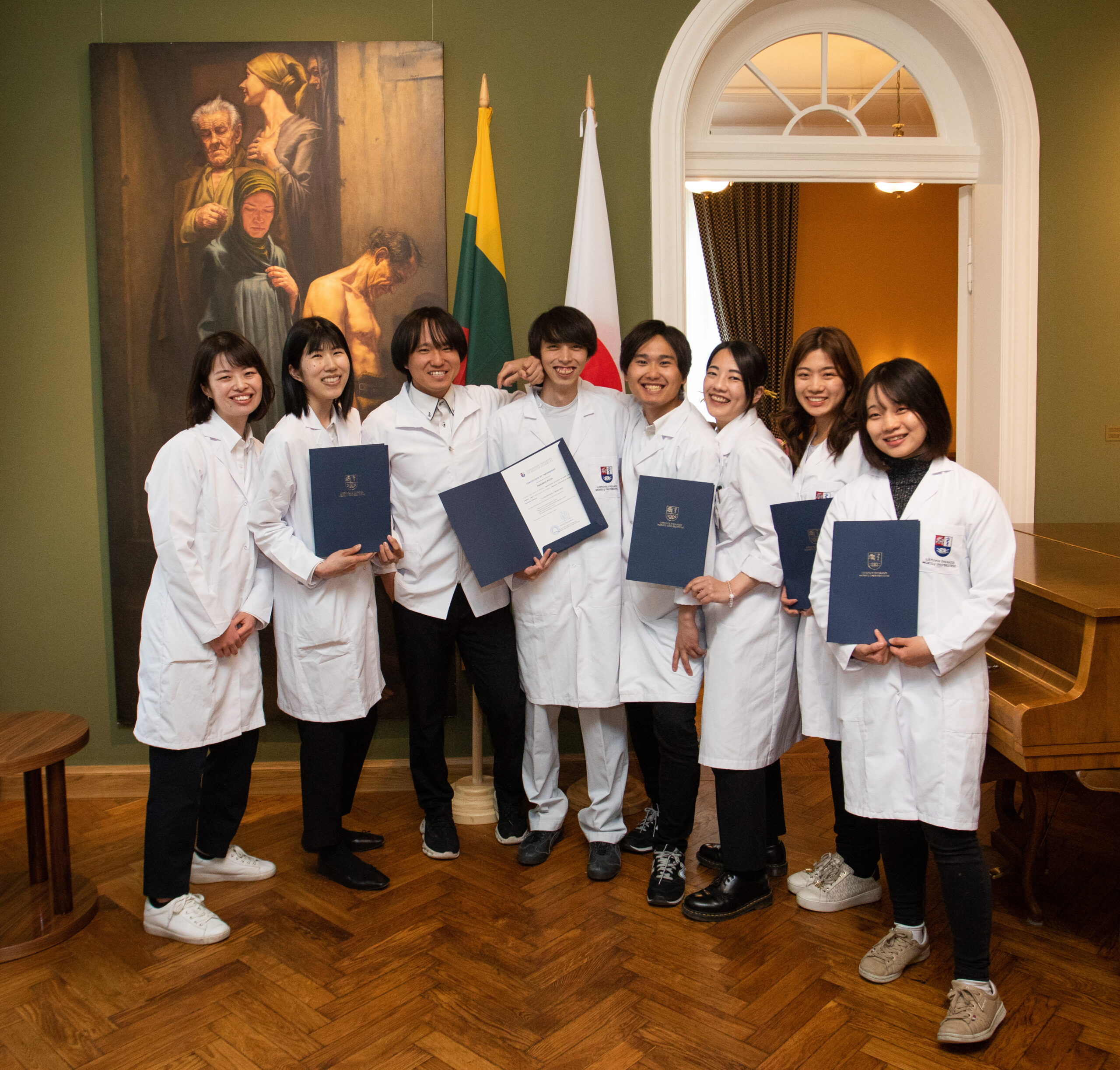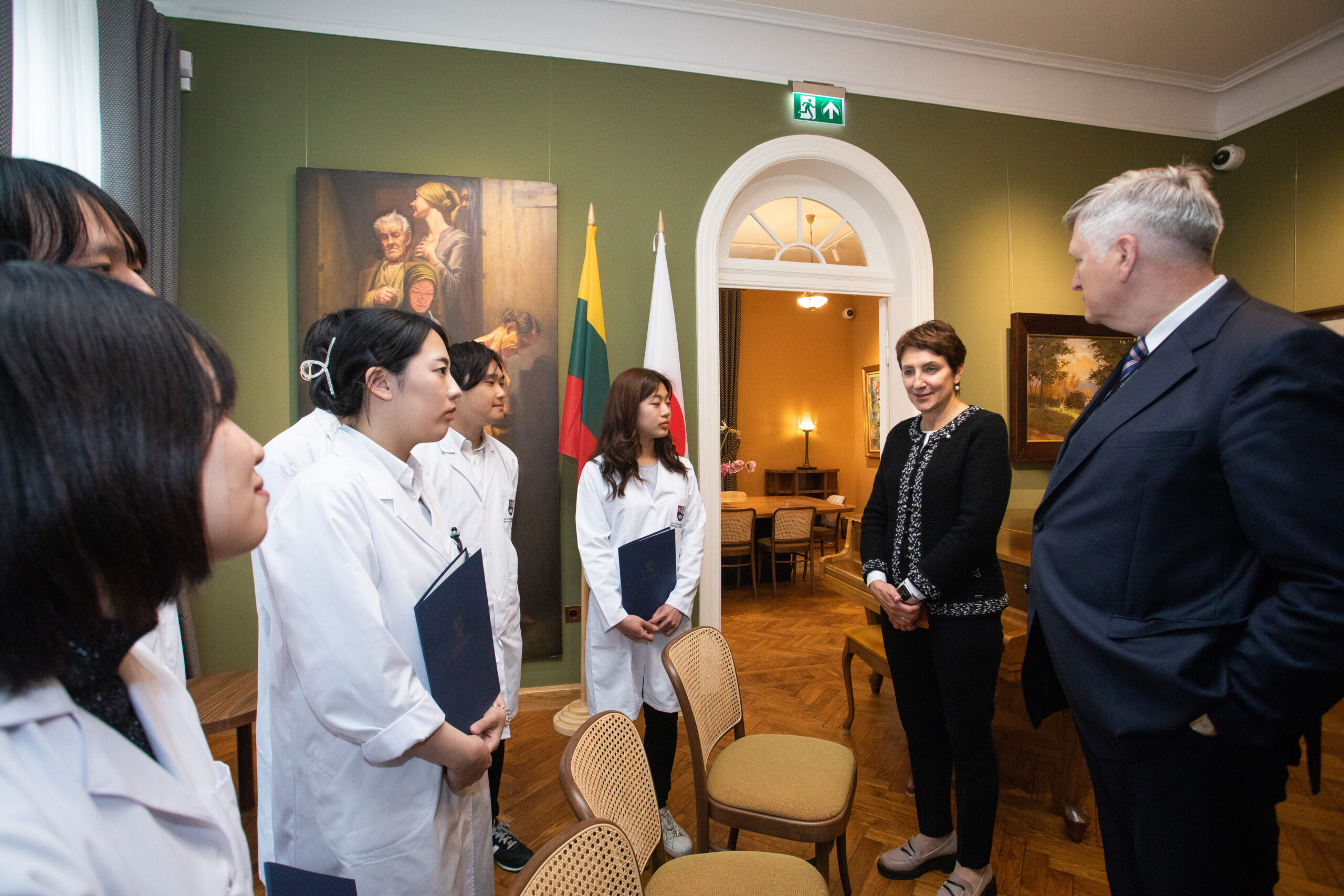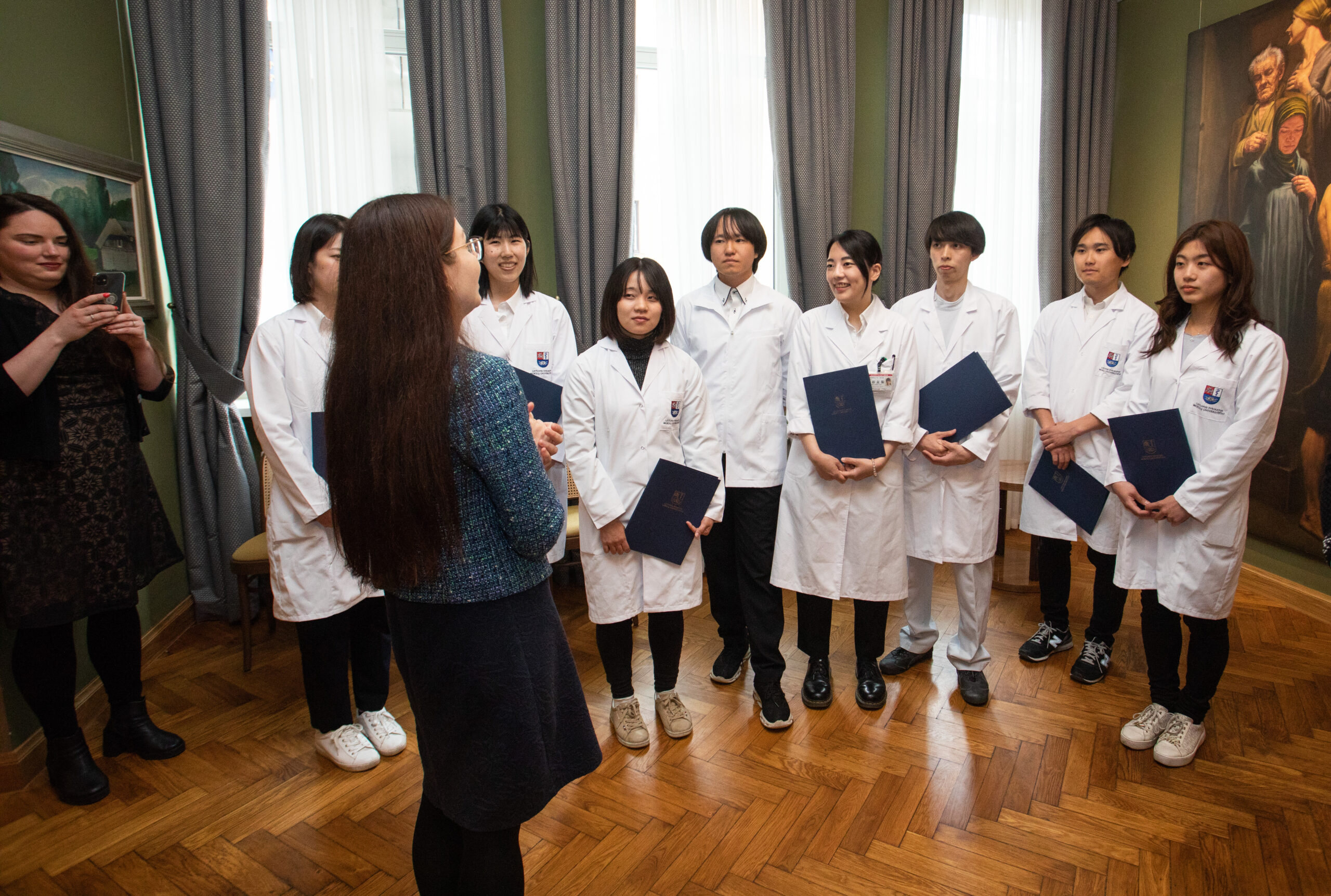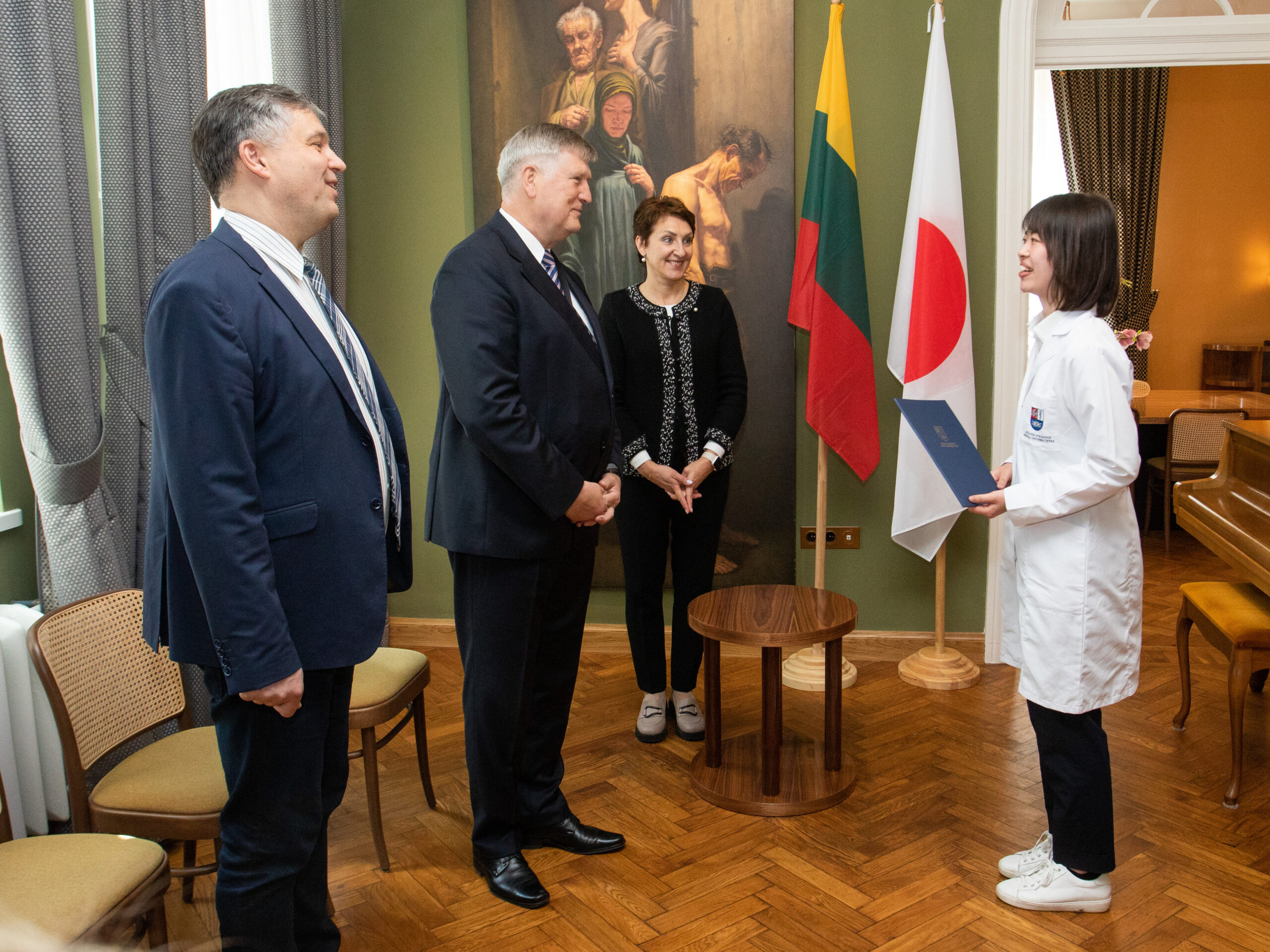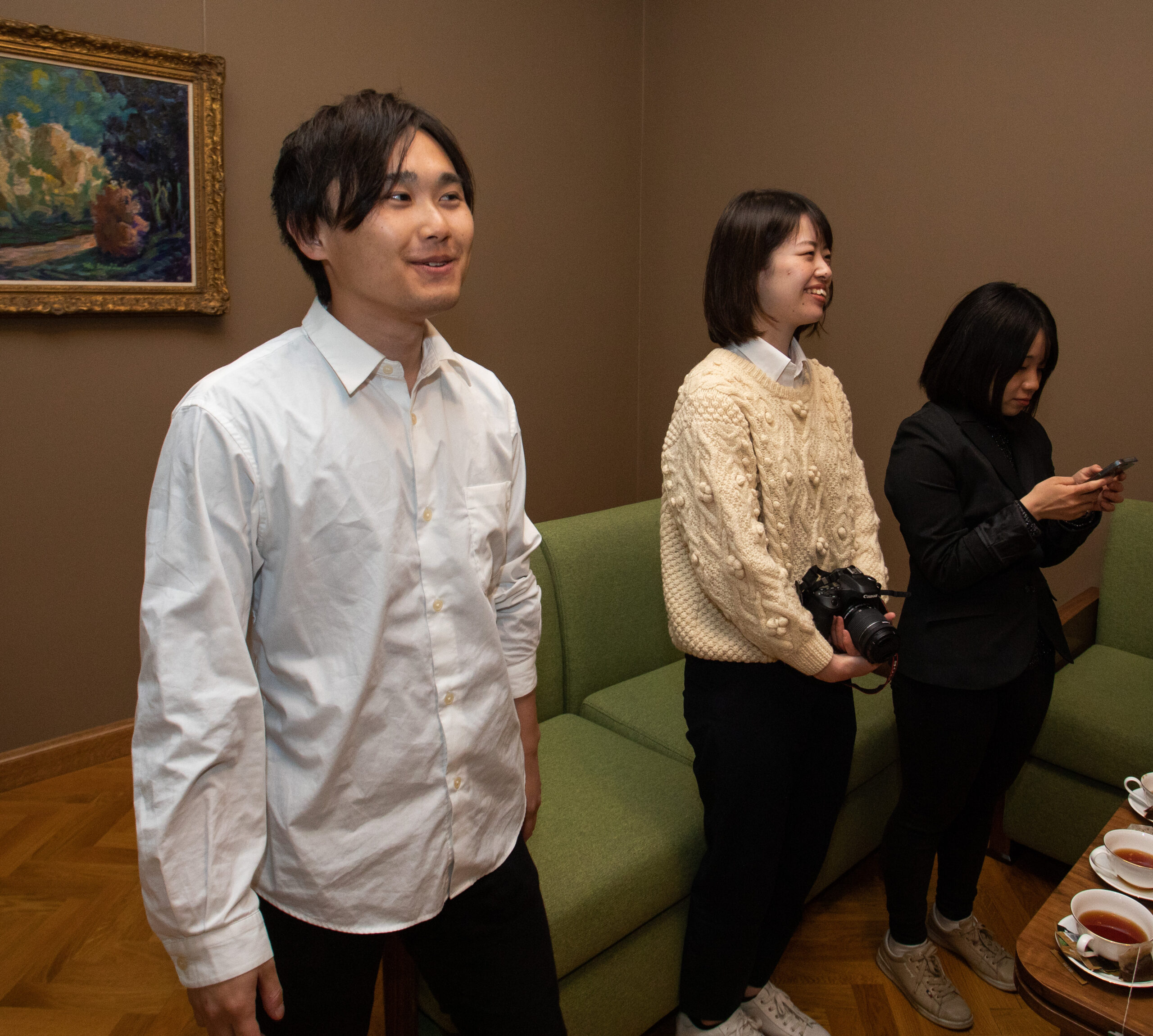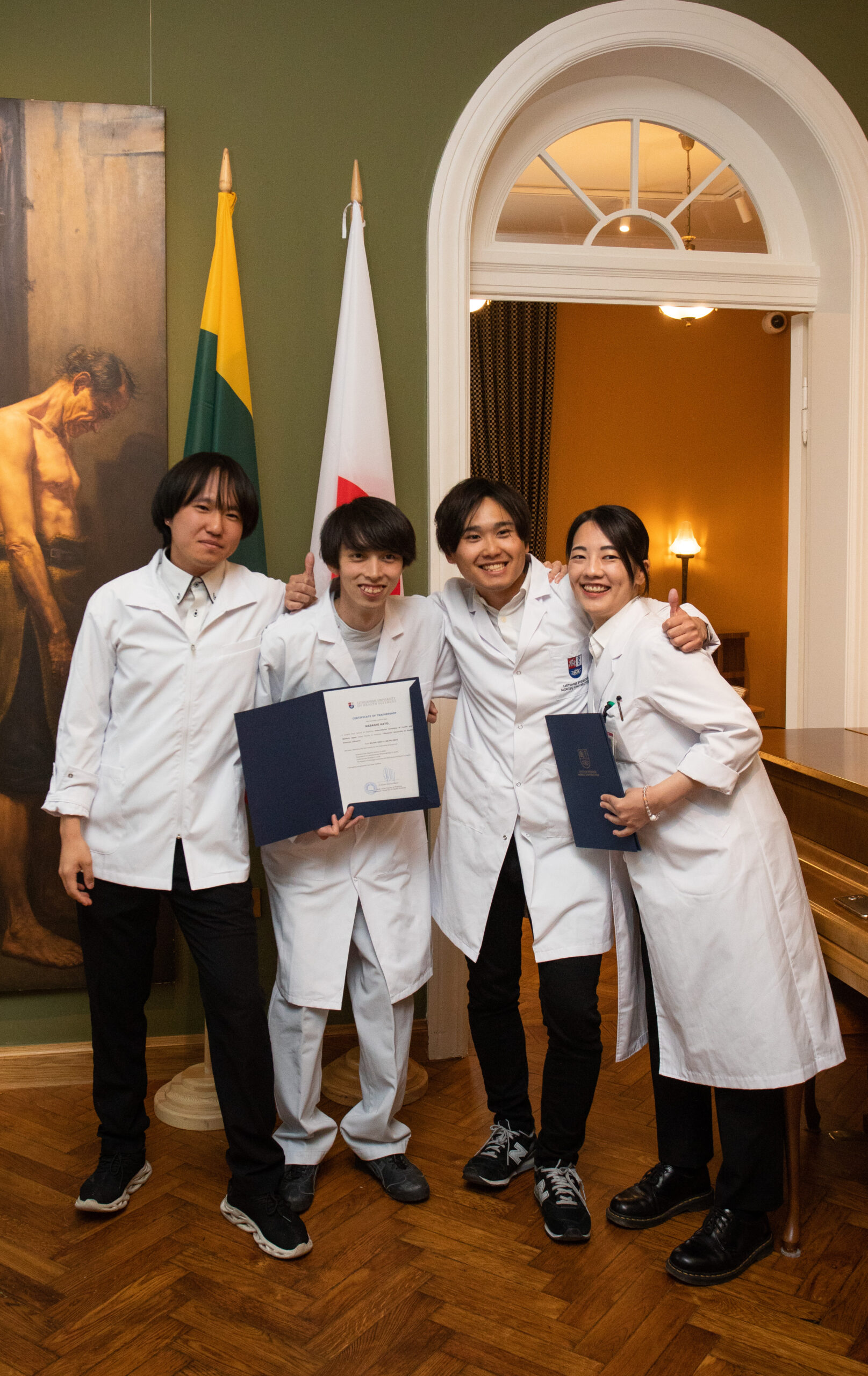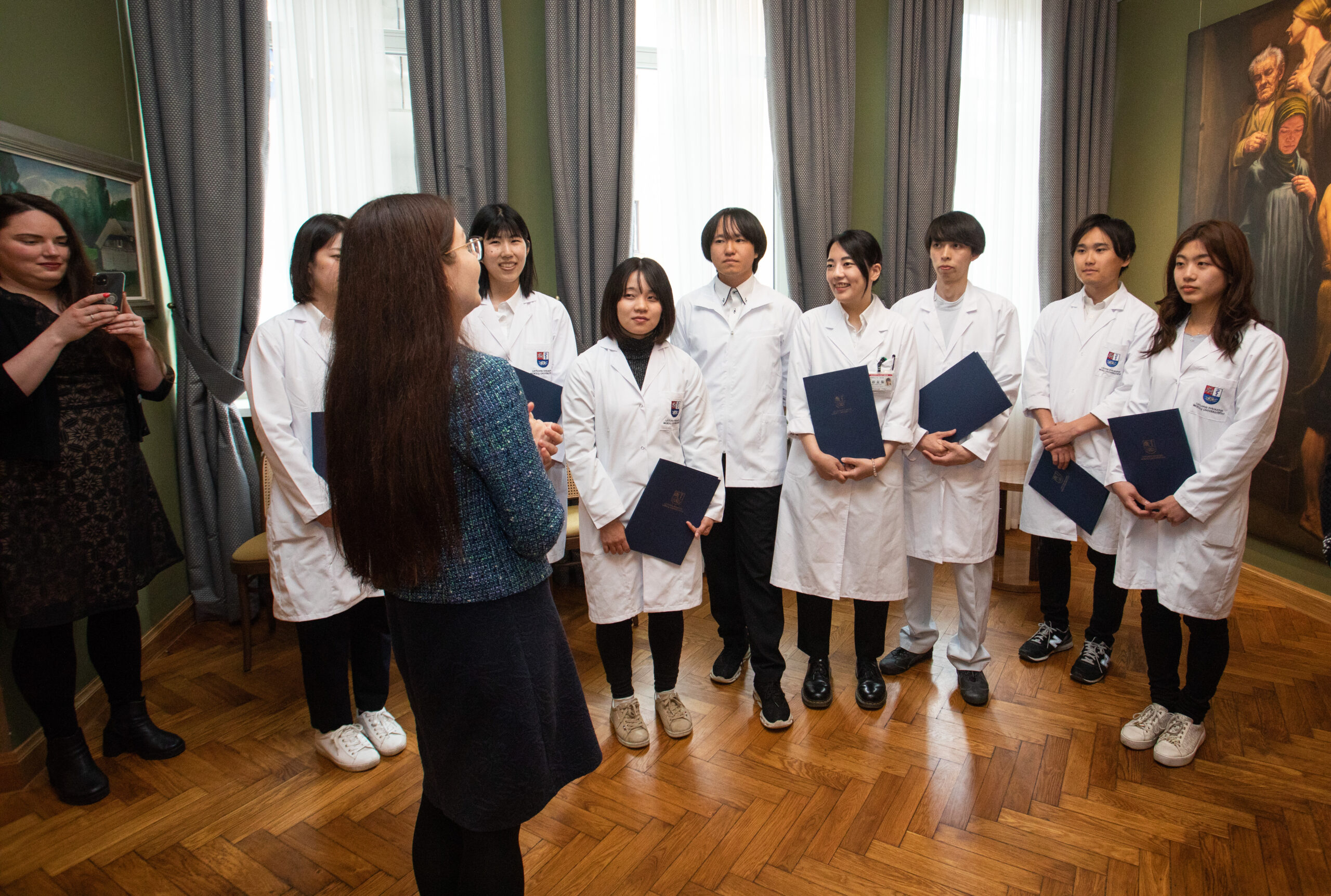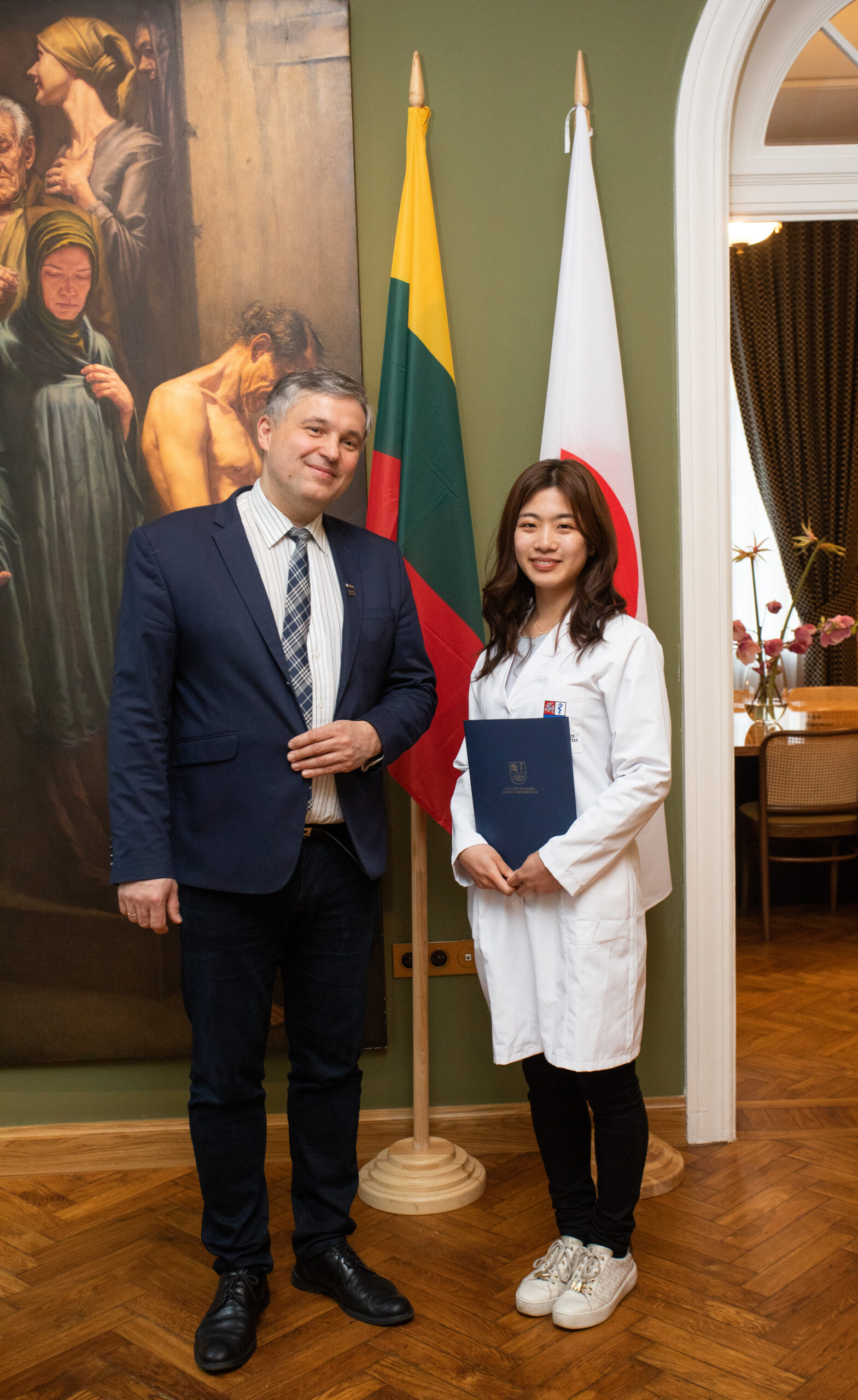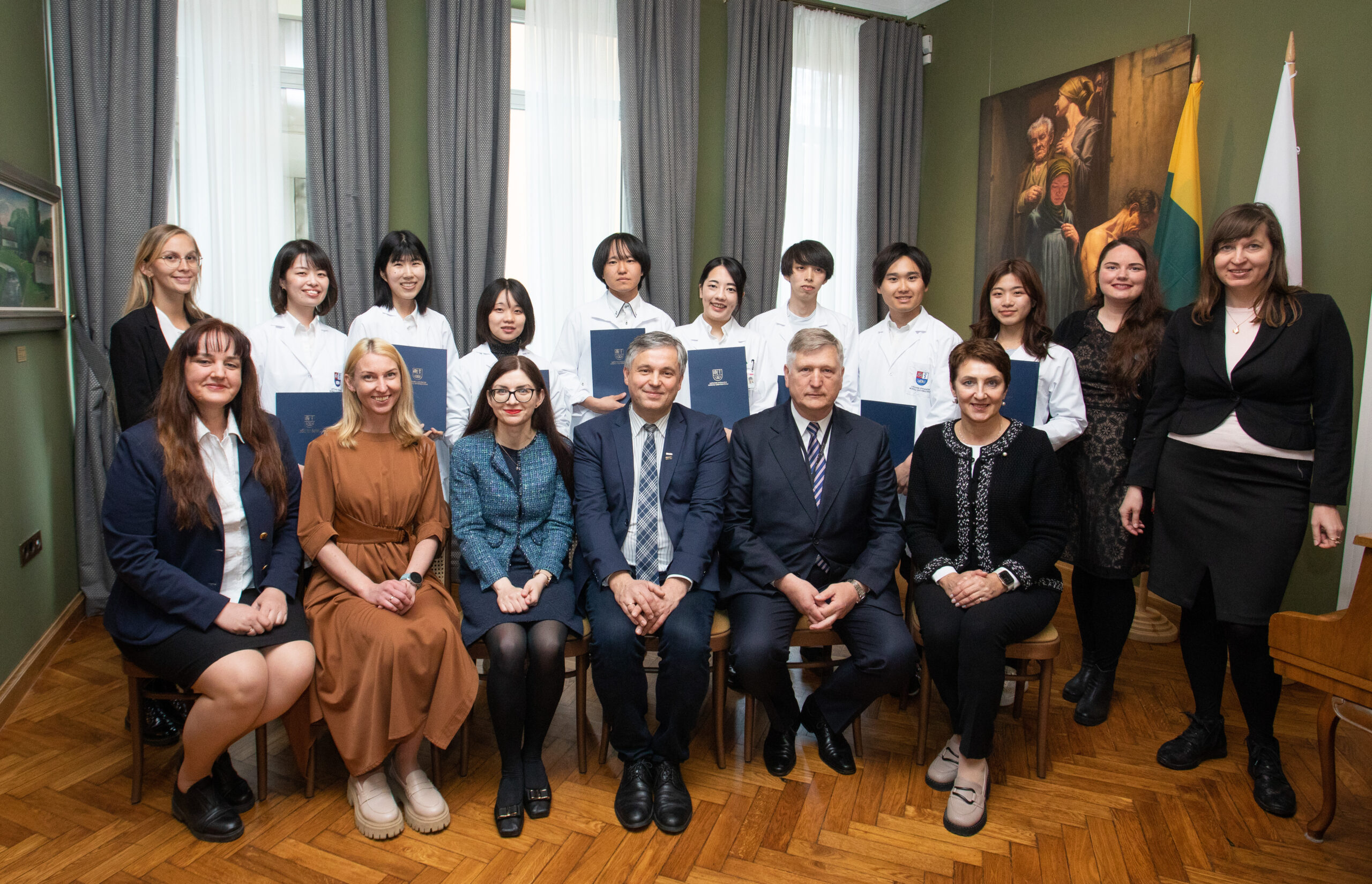Japanese Students’ Visit to the LSMU Ends with Mutual Benefits
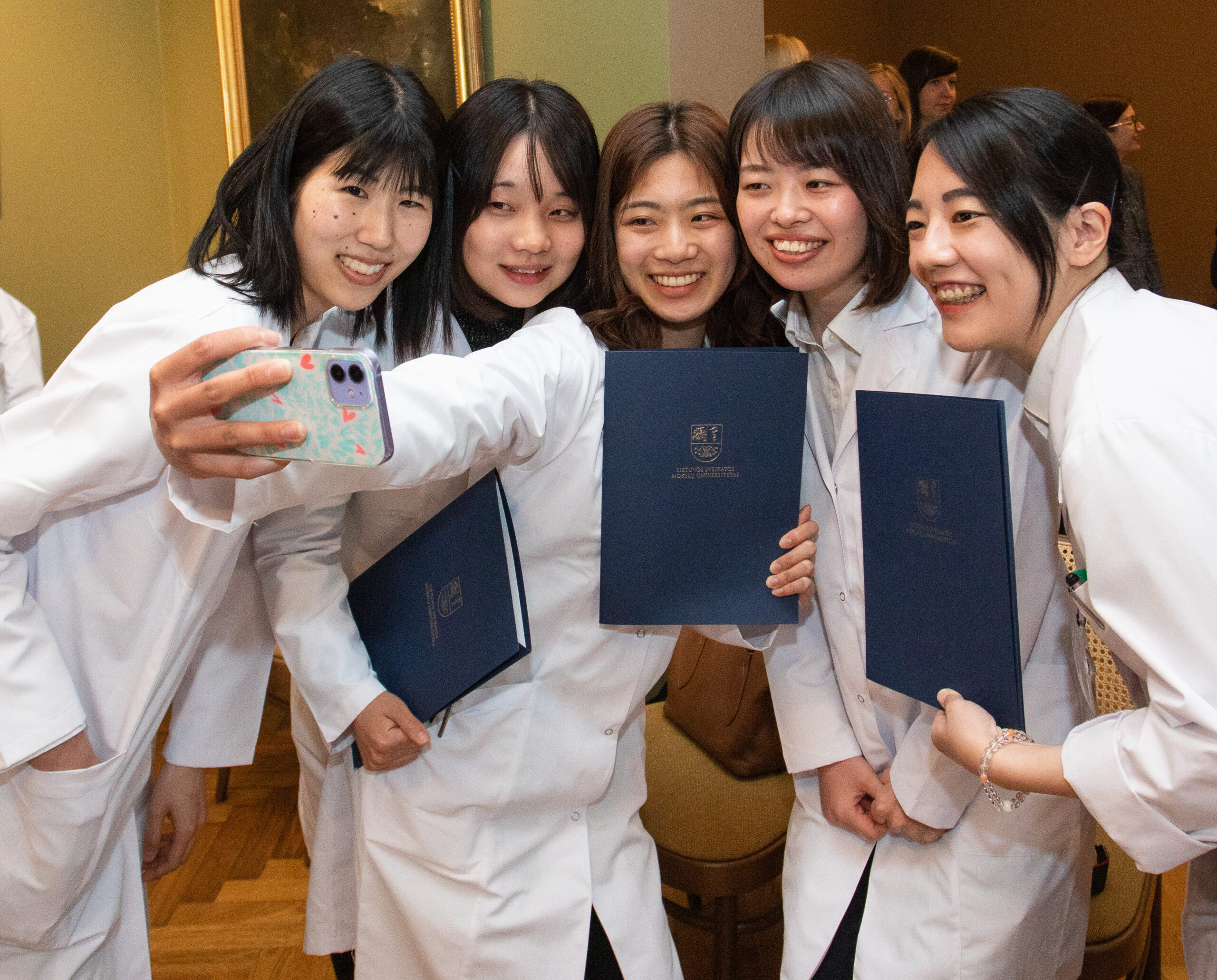
The visit of students from the International University of Health and Welfare (IUHW) of Japan to the Lithuanian University of Health Sciences (LSMU) has come to an end. The young people from Japan spent a month in Kaunas. During the visit, they observed the functioning of the Lithuanian health system, saw the best clinical practices, and learnt about the culture of our country.
A farewell ceremony was held on Friday at the LSMU Emanuel Levin Centre. During the ceremony, Prof. Dr. Rimantas Benetis, Rector of LSMU, accompanied by Prof. Dr. Andrius Macas, Dean of the Faculty of Medicine, and Prof. Dr. Ingrida Janulevičienė, Dean of the International Relations and Study Centre (IRSC), handed over the certificates of clinical practice to the future Japanese medical doctors.
Cultural Awareness Helps Understand Diverse Patients
The visit of the Japanese students and key welfare issues were taken care of by Prof. Dr. Ingrida Janulevičienė, Dean of IRSC, and her team. The theoretical and practical training of the young people was arranged by colleagues from the Faculty of Medicine. According to Prof. Dr. A. Macas, Dean of the Faculty of Medicine, exchange programmes of this kind are useful in developing the ability of health professionals to approach and make contact with patients with different worldviews.
“In medicine or health sciences in general, cultural awareness is extremely important. I could even add that it is essential. A doctor, a nurse, or any other health professional needs to be able to navigate cultural aspects in order to understand the patients or colleagues who have different worldviews or behave differently. This certificate ceremony was an illustrative example of cultural differences. We are used to shaking hands on such occasions, while the Japanese bow. Different nations practice different relationships between people, and as soon as you become aware of that, you start to understand why your patients or colleagues may sometimes be different from you,” the Dean shared his thoughts.
He added that not only the students but also the teachers and the organisation had the chance to improve as a result of the exchange.
“In this programme, the Faculty of Medicine was assigned to prepare for the students’ visit by developing the appropriate content. The managers of the Japanese university wanted their students to learn the same things as our students. However, we had to make one proviso: since their stay coincided with Easter, we had to customise the curriculum for the holidays. I believe we handled the challenge well and showed the faculty’s ability to adapt quickly to a changing situation,” said the professor commending his team on the work.
Equivalent Universities
Assoc. Prof. Eglė Rumbinaitė, a cardiologist at the Department of Cardiology of the Faculty of Medicine, who had just returned from her internship at the International University of Health and Welfare, also attended the farewell ceremony. In the Land of the Rising Sun, she had the opportunity not only to teach but also to work as a clinical cardiologist.
“Medicine is universal, and a cardiologist from Lithuania can certainly adapt well and work in the Japanese medical system. As specialists, we stand on equal grounds, and we can be proud that the level of our university and its affiliated hospitals is not inferior to Japan. Together we can make the best decisions for our patients,” said the Associate Professor.
She shared kind words with her students: “Teaching the Japanese was a very interesting, multifaceted experience. These young people have great respect for their teachers, they are very consistent, responsible, and interested. After every lecture, there was a queue of students lined up to ask a question, which was very motivating. I have embraced their approach to learning, and I believe I will apply it in Lithuania.”
At the end of the formal part of the event, the Lithuanian and Japanese representatives shared their impressions and discussed the experience and possible improvements. The Japanese guests expressed their appreciation for the warm welcome and the lessons learned. Both sides agreed that the exchange had been useful and should be continued in the future.

